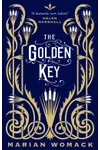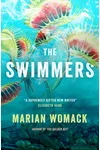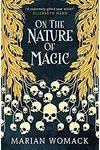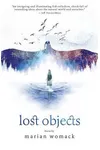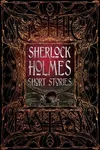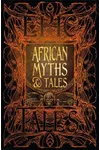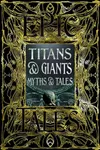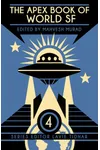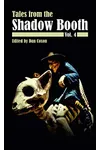Picture a Spanish storyteller weaving eerie tales of crumbling landscapes and ghostly encounters—meet Marian Womack! This bilingual author has carved a unique niche in speculative fiction, blending ecological dread with gothic charm. Her English-language debut, Lost Objects, stunned readers with its haunting prose, cementing her as a rising star in science fiction and fantasy.
Born in Andalusia and educated at top UK universities, Womack’s journey is as multifaceted as her stories. From teaching at Oxford to running her own publishing press, she’s a literary force whose work speaks to our planet’s fragile future.
The Making of Marian Womack
Marian Womack hails from Cádiz, Spain, where her early love for storytelling took root in Andalusia’s sun-soaked landscapes. She pursued English Literature and Film Studies at the University of Glasgow, later earning graduate degrees from Oxford and Cambridge. A graduate of the prestigious Clarion Writers’ Workshop, Womack honed her craft alongside speculative fiction’s finest. Her bilingual background—writing in both Spanish and English—infuses her work with a cross-cultural richness that sets her apart.
Before her English debut, Womack made waves in Spain as a translator and editor, introducing Spanish readers to female speculative fiction authors like Nina Allan and Lisa Tuttle through her imprint, Fábulas de Albión. Her academic career, including roles at Oxford’s Bodleian Library and Cambridge’s Modern and Medieval Faculty Library, deepened her passion for storytelling as a tool for exploring human and environmental truths.
Marian Womack’s Unforgettable Stories
Womack’s writing is a mesmerizing blend of weird fiction, gothic horror, and science fiction, often laced with ecological themes. Her debut collection, Lost Objects (2018), is a masterclass in speculative storytelling. Its ten stories explore decaying landscapes—from dystopian Andalusia to a ravaged Norfolk countryside—where ghostly lovers and monstrous insects reflect humanity’s environmental recklessness. Critics, including Jeff VanderMeer, praised its “interesting ideas about the natural world,” and it earned nominations for two British Fantasy Awards and one BSFA Award.
Her first English novel, The Golden Key (2020), is a gothic mystery set in 1901 Norfolk, where a female detective unravels supernatural secrets in a world tainted by human greed. The Swimmers (2021), a novella inspired by Jean Rhys’s Wide Sargasso Sea, paints a claustrophobic, near-future Andalusia ravaged by climate change. Here, giant hares and predatory plants underscore nature’s rebellion against human hubris. Her latest, On the Nature of Magic (2023), continues her Walton & Waltraud mystery series, blending gothic intrigue with environmental undertones.
Womack’s prose is luminous yet unsettling, often experimenting with fragmented narratives and genre-blending. Her stories don’t just entertain—they challenge readers to confront the Anthropocene’s harsh realities through a lens of beauty and terror.
Why Marian Womack Matters
Marian Womack’s work resonates because it dares to imagine the consequences of our environmental neglect while celebrating the power of stories to inspire change. Her ecological fiction, featured in international art installations and translated into Italian and Norwegian, amplifies urgent climate conversations. By centering women and marginalized voices in her narratives, she redefines speculative fiction’s boundaries, earning accolades from peers like Nina Allan and Elizabeth Hand.
As a teacher at Oxford and co-founder of Calque Press, Womack nurtures new voices in speculative fiction, ensuring her influence extends beyond her own writing. Her ability to weave personal loss, cultural identity, and planetary stakes into unforgettable tales makes her a vital voice in today’s literary landscape.
- Born: 1975, Cádiz, Spain
- Key Works: Lost Objects (2018), The Golden Key (2020), The Swimmers (2021), On the Nature of Magic (2023)
- Awards: Nominated for two British Fantasy Awards and one BSFA Award
- Fun Fact: First Spanish writer to attend the Clarion Writers’ Workshop
About Marian Womack
Snag Lost Objects or The Swimmers and dive into Marian Womack’s haunting, eco-conscious worlds—you won’t look at nature the same way again!
